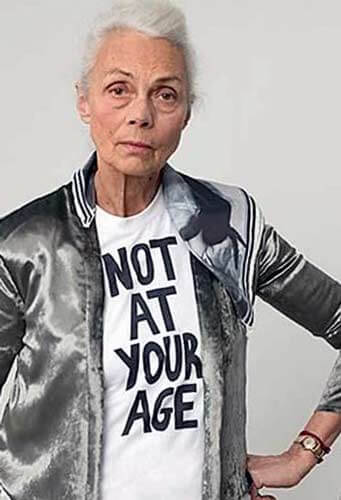Sixty something
You can tell ageing is considered a misfortune by the euphemisms people reach for to denote it. ‘Advancing years’, ‘senior citizen’, ‘silvers’. Even the charity Age UK chooses a coy epithet, ‘later life’, as the pivot of its brand communications. Why can’t we all just talk about ‘old people’, the way we would happily refer to ‘young people’? Somehow, we feel it would be alienating to, well, the old.
Who are they, anyway, these old people? When does old age start? It depends where in Europe you live. That is one of the fascinating findings of the latest European Social Survey, a major, biennial research study that probes 55,000 respondents on attitudes to a whole raft of social subjects, including age.
It turns out that, here in the UK, we believe old age kicks in earlier than almost anywhere else in Europe, at 59. Youth, we believe, ends at 35, again, much earlier than the European average, leaving us with 24 years of perceived middle age.
One of the delicious ironies in the survey is that the Greeks come top for optimism about the march of time. They believe that youth doesn’t end until almost 52 and old age doesn’t start until 67. These are interesting findings from the country with the lowest average retirement age in Europe.
There is some illuminating academic theory in the survey report on what underpins our attitude toward the old. According to the ‘stereotype content model’ (Fiske et al., 2002), social groups – such as younger and older people – can be evaluated along two basic dimensions: competence and warmth. Our emotional reactions toward any given group are then a function of that combination.
The most admired groups tend to be those where both values are perceived to be high. Groups rated with high competence and low warmth (the rich, for example) are likely to be envied. Groups, such as homeless people, that score low on both dimensions, prompt feelings of contempt. Groups where warmth is rated high, but competence low, we tend to pity. For most people, the old fall into this perceptual group. They are, nonetheless, a rapidly growing group, with increasing economic firepower. So what, as a marketer, can you do to avoid exacerbating the stereotype and start realising the opportunity?
The answer may be to soft-pedal on the warmth bit, but reflect back to this cohort its true, high competence. That starts with dropping the euphemisms, which are a giveaway sign of patronisation, and telling it like it is. This directness is at the heart of some innovative niche brands.
Old Ladies’ Rebellion is a fashion label created by designer Fanny Karst for women over 60. No hint of euphemism in the name and no hint of timidity in the range, with its silky tunics and stridently witty T-shirts.
In beautycare, the brand This Works, founded by 60-something former Vogue beauty director, Kathy Phillips, uses the slogan ‘age wisely’ for its nowrinkles range. Contrast that with the verbal style of L’Oreal’s Youth Code, where age is treated as something akin to a disease.
Europe’s population is ageing fast, and marketers need to stay on top of that trend. So take a look at the survey report (www.eurage.com). It could prompt some new brand thinking on what it really means to be old.
Five of the world’s top 10 oldest populations are in Europe, a result of dramatically reduced fertility rates and longer life expectancies.
William H Frey, an analyst for the Brookings Institution think tank, predicts the median age in Europe will increase from 37.7 in 2003 to 52.3 by 2050, while the median age of people in the US will rise to just 35.4.
The average annual gross income of over-65s in Western Europe is almost €23,000 per capita, which has remained constant since 2005.
Many governments are raising the age at which people will be entitled to pension benefits. In France, it was decided in 2010 to raise the minimum retirement age from 60 to 62 by 2018. In Britain, for males, it is set to be 66 by 2016, and 68 by 2046.
According to the Office for National Statistics, there are now 10,000 centenarians in Britain, compared with only about 100 a century ago.

Old Ladies’ Rebellion strident
A quarter of all the babies born last year are expected to live longer than 100 years. The Queen’s practice of sending cards to people on their 10oth birthday will not be a viable option in the future: too much work for the palace, too little of note in the achievement.
